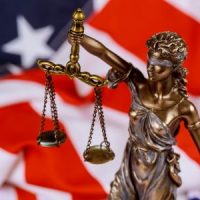Can the Government Use a “Substitute” Expert Witness?

The Constitution guarantees every criminal defendant the right to “confront” the witnesses against him at trial. In simple terms, this means the defendant–or more commonly, their attorney–can cross-examine the prosecution’s witnesses. Put another way, the prosecution cannot use the testimony of people who are not in the courtroom to convict the defendant. There is a limited exception for cases where a witness is unavailable and the defendant had a prior chance to conduct a cross-examination. But in general, using any out-of-court statements to prove the truth of the matter asserted is inadmissible hearsay.
Supreme Court Addresses Arizona Drug Conviction Based on Last-Minute Switch
The United States Supreme Court recently addressed whether the hearsay rule covers a situation where the state uses a “substitute” expert witness to testify as to the truth of a matter asserted by an unavailable expert witness. The case before the Court, Smith v. Arizona, involved a state-level drug prosecution. Arizona police arrested the defendant in this case and, pursuant to a search warrant, retrieved “a large quantity of what appeared to be drugs and drug-related items” from his property.
As is common in drug cases, the State of Arizona had the seized evidence tested in its forensics laboratory. An analyst employed by the Arizona Department of Public Safety (DPS) conducted the testing and prepared a report documenting her work and the results, which indicated positive tests for marijuana and methamphetamine.
Arizona prosecutors planned to call the analyst as a witness at the defendant’s trial to testify about her findings. But by the time the trial came, the analyst no longer worked for the DPS. So, about three weeks before the trial, the state decided to bring in a “substitute expert.” The prosecution claimed this new witness would “provide an independent opinion on the drug testing performed” by the analyst. At trial, the substitute expert testified that he reviewed the analyst’s notes, and based on her findings, it was his expert opinion that the evidence seized from the defendant contained illegal drugs. The jury proceeded to find the defendant guilty of multiple drug charges.
In reviewing the case, the Supreme Court reaffirmed that a state “may not introduce the testimonial out-of-court statements of a forensic analyst at trial, unless she is unavailable and the defendant has had a prior chance to cross-examine her.” In addition, the Court said the state could not “introduce those statements through a surrogate analyst who did not participate in their creation.” Nor could, as the prosecution did in this case, the substitute expert use the analyst’s findings as the “factual” basis for his own opinions offered at trial.
The Supreme Court did not, however, overturn the defendant’s conviction. The Court’s review was based on the assumption that the analyst’s report constituted “testimonial” statements subject to the right of cross-examination. But the Arizona courts never made that determination in the first place. As such, the Supreme Court returned the case to Arizona to address this and other related questions specific to this defendant.
Contact Joshi Law Firm Today
Many Florida criminal cases turn on the testimony of forensic analysts and other expert witnesses. It is therefore critical that if you are facing such charges, you work with an experienced Orlando drug crime lawyer who can assist you in mounting a zealous defense. Call the Joshi Law Firm, PA, today at 844-GO-JOSHI or contact us online to schedule a free initial consultation.
Source:
supremecourt.gov/opinions/23pdf/22-899_97be.pdf

